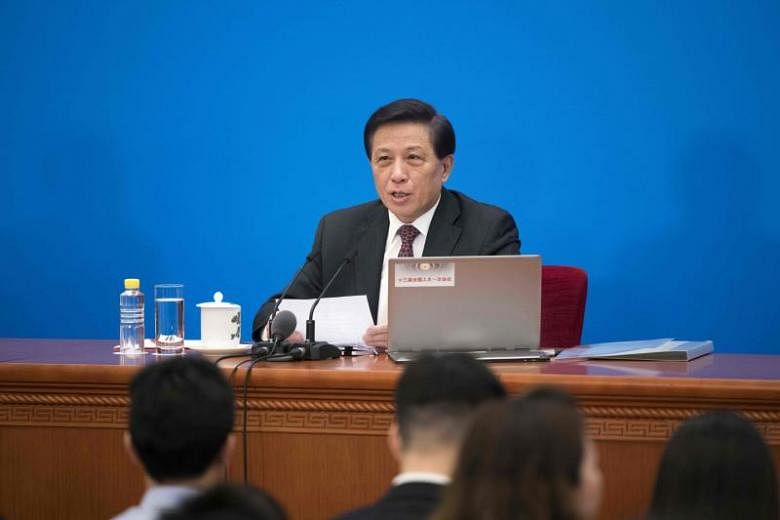BEIJING - China's top legislative body will draft the country's first law to fight soil pollution this year, part of efforts to protect the environment and address food safety concerns arising from soil pollution.
The world's top polluter already has laws to control and prevent air and water pollution.
Mr Zhang Yesui, spokesman for the National People's Congress (NPC), said at a press conference on Sunday (March 4) that the Chinese government will continue to make environmental protection a priority, ensure existing laws are effectively enforced, and make legislative changes to combat pollution.
Besides the new law on soil pollution, the changes include amending an existing law on solid waste pollution, said Mr Zhang.
His comments to reporters at the Great Hall of the People came a day before the start of the NPC's annual meeting, where delegates are expected to debate amending the Constitution to expand the role of China's Cabinet to include ecological advancement.
Mr Zhang said "visible and notable progress" has been made in addressing the challenges facing the environment, pointing out that there were more days with blue skies in Beijing over the past year.
Curbing pollution and keeping the environment clean are key tenets of Chinese President Xi Jinping's pledge at last October's 19th Party Congress to build a "moderately prosperous society" by 2020.
On Sunday, Mr Zhang said in the past five years, the NPC has been working on a stringent legal framework to address pollution, pointing out that it has enacted or modified six laws in areas including air pollution, water pollution and wildlife protection, among others.
"(We) will continue to work hard to provide strong legal support, and to make sure that we will win the campaign against pollution," said Mr Zhang.
But soil pollution - usually caused by industrial activity, fertiliser and pesticide contamination, and improper toxic waste disposal - remains an area where stricter regulation is sorely needed.
Food safety concerns have mounted over the years amid reports of crops being grown on contaminated soil.
Last month, the Chinese government said it would try to make around 90 per cent of its contaminated farmland safe for crops by the end of 2020.
A 2013 survey showed about 3.33 million hectares of Chinese farmland - about the size of Belgium - was considered too polluted to grow crops, with estimated clean-up costs amounting to 1 trillion yuan (S$208 billion).
Mr Ma Jun, director of the Beijing-based Institute of Public and Environmental Affairs, said China's development in the past 40 years has seen large quantities of pollutants emitted, befouling the country's air, water and soil.
While laws have been enacted to address air and water pollution, soil pollution needs to be stringently controlled, he added.
"This needs to be addressed at the source, because once soil is polluted it is very costly and difficult to repair the damage.


